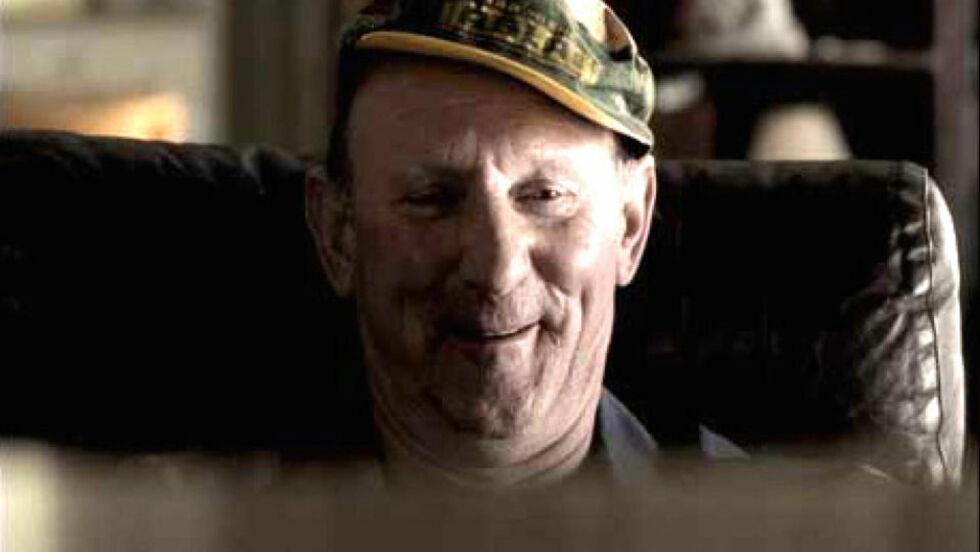The notion of the lucky place is a recurring one in the cultural history of the lottery. That buying your ticket at a particular lottery agent or in a particular town could increase your chances of winning, is an idea that has tempted many a player. For Norwegians living through the late 1990s and early 2000s, the lottery was intimately connected with the town of Verdal. In what would quickly become an iconographic TV advertisement from 1998, Norsk Tipping (the Norwegian national lottery institution) helped support the myth of Verdal as “lotto-bygda”, “the lottery town”.
In a study of the Swedish press coverage of lottery winners, the social anthropologist Per Binde has shown how the press transmits the idea of lucky stores, towns, and even streets:
Gamblers are attracted to such stores and their turnover for gambling services increases significantly. Some people hope, more or less seriously, that these stores will bring them luck. Others patronize them out of curiosity or to discuss the large wins, or more generally to experience the merry and lucky atmosphere of the places. Newspapers, especially local ones, often write about these lucky shops.
Binde, Per. (2007). The Good, the Bad and the Unhappy: The Cultural Meanings of Newspaper Reporting on Jackpot Winners. International gambling studies, 7(2), 213-232 (p. 226). doi:10.1080/14459790701387667
The lucky place seems to be what we can call a cultural trope, an idea circulating in our culture, with no clear point of origin.
The trope seems to have a long history, stretching all the way back to the eighteenth century. A French engraving from 1759 or 1760, entitled “La Buraliste” (“the [female] lottery agent”), depicts a young and beautiful lottery agent, receiving players at her bureau de loterie (lottery office). The engraving is accompanied by a short poem: “Take the tickets from her hand/And you shall see/We know that through Beauties/is the way to fortune”. Together, the image and the text establish an association between beauty and luck, indicating how your fortune in the lottery is dependent on where you buy your tickets.
The engraving was printed in an almanac published for use in the lottery of the French Royal military school, established in 1757, precursor of the Royal Lottery (1776) and first example of the Genoese lottery system, il lotto, in France. This Almanach utile et agréable de la Loterie de l’Ecole Royale militaire (Useful and Pleasant Almanac of the Lottery of the Royal military school) was aimed at prospective lottery players, explaining the origins and the rules of the game, as well as providing various methods for increasing one’s chances of winning. In a similar publication from a few years later, the Oniroscopie ou Application des songes aux numéros de la lotterie de l’École royale militaire (1773), a manual for using dream interpretation to predict the winning numbers, we find a similar engraving: “La Belle Receveuse”, “the beautiful lottery agent”.
Here, the popularity of the lottery office is more explicit, with a long queue stretching all the way outside. The image also contains an erotic element, created by the woman’s decolletage, towards which the gaze of the man in front of the line is directed, as well as underlined by the five cherubs holding lottery tickets. Again, we find an association between luck and beauty, strengthened by the accompanying text reading “Ah, if only all beauties were lottery sellers!”
What these eighteenth-century examples convey that our present-day examples do not, is how appearances produce trust and desire. A literary example from the same period builds on the same idea. In the memoirs of Giacomo Casanova (1725–1798), the famous Venetian adventurer recounts his role in the establishment of the lottery of the French Royal military school and his experiences as a lottery agent in Paris:
In all the great houses where I went, and in the theatre foyers, immediately when they saw me everyone gave me money and begged me to wager it for them as I pleased, and to give them back the tickets, since they did not understand anything of it. I carried large and small tickets in my pocket, from which I let them choose, and I returned home with my pockets filled with gold. The other resellers did not have this privilege. They were not people made for being introduced. I was the only one riding in a coach; this gave me a name, and an open credit. Paris was, and still is, a city where everything is judged by appearances: there is no place on earth where it is easier to impress.
Giacomo Casanova, Histoire de ma vie, 3 vols (Paris: Éditions Robert Laffont, 2013–18),
II, pp. 22–23. My translation.
Casanova’s display of wealth instils potential buyers with trust and leads them to the conclusion that their money is better spent with him than with other agents. Whether in a small Norwegian town in the late twentieth century or in Paris 240 years before, we seem to be easily seduced by the idea that some places, and people, might just be luckier than others. And even though the “beautiful lottery agent” is a generic figure, and although most people might not get the chance to buy a lottery ticket in Verdal, the very idea that some are luckier than others might just be an argument for buying a ticket. It could be you!

Marius Warholm Haugen
Marius Warholm Haugen is Professor of French Literature at NTNU. Specializing in eighteenth-century studies, he is particularly interested in transnational exchanges, circulation, and translation in and between Italian, French, and British literature. He will conduct research on the representation of the lottery fantasy in French print culture and its connections to Italy and Britain.
